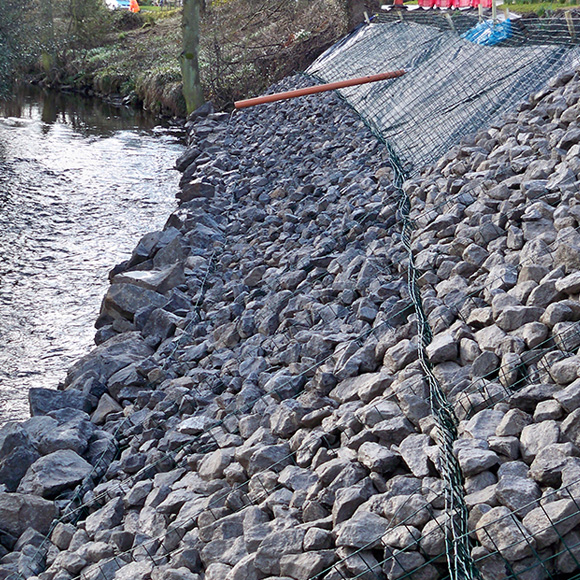Aug . 13, 2024 15:02 Back to list
Optimal Options for Gabion Support Posts to Enhance Stability and Durability in Landscaping Projects
Best Gabion Support Posts Choosing the Right Option for Your Project
Gabion walls have become increasingly popular in both residential and commercial landscaping projects due to their unique aesthetic and structural benefits. These wire mesh structures filled with rocks, stones, or other materials provide excellent support and drainage, making them ideal for various applications, from retaining walls to decorative features. However, the longevity and stability of a gabion wall heavily depend on the quality of the support posts used. In this article, we'll explore the best types of gabion support posts and factors to consider when selecting them for your project.
Understanding Gabion Support Posts
Gabion support posts are vertical structures that help maintain the integrity of the gabion wall. They play a crucial role in providing stability, especially in areas with unstable soil or high water drainage. Without proper support, gabion walls can shift or collapse, leading to costly repairs. Hence, choosing the right type of support post is essential for a successful gabion project.
Types of Gabion Support Posts
When selecting gabion support posts, you typically encounter several materials, each with its own advantages and disadvantages
1. Steel Posts Steel is a popular choice due to its strength and durability. Galvanized steel posts are particularly beneficial as they resist rust and corrosion, enhancing the lifespan of your gabion wall. Additionally, they can withstand heavy loads, making them suitable for larger gabion structures.
2. Wooden Posts Wooden posts can provide a natural look that complements the aesthetics of stone-filled gabions. However, untreated wood is susceptible to rotting and insect damage. If you opt for wooden posts, ensure they are treated with preservatives to enhance durability.
3. Concrete Posts Concrete offers tremendous strength and stability, making it an excellent option for heavy-duty applications. Concrete posts can withstand harsh weather conditions and provide a solid foundation for gabion walls. However, they can also be more expensive and challenging to install compared to other materials.
best gabion support posts

4. Composite Posts Composite materials, often made from recycled plastics or wood fibers, are becoming increasingly popular due to their resistance to rot, insects, and weathering. They are lightweight, making installation easier, while also providing a modern touch to landscaping.
Factors to Consider
When selecting the best gabion support posts for your project, keep in mind several important factors
1. Soil Conditions Assess the soil conditions at your project site. If you are dealing with uneven or unstable soil, opt for stronger materials like steel or concrete to provide adequate support.
2. Wall Height and Weight The height and weight of the gabion wall will dictate the type of support posts needed. Taller walls with heavier loads require more robust posts to ensure safety and stability.
3. Aesthetic Preferences Consider the overall design and aesthetic of your project. If aesthetics are a priority, wooden or composite posts may be more visually appealing than steel or concrete.
4. Cost Budget is always a critical factor in any construction project. While concrete and steel are often more expensive, their durability can save money in the long run by reducing maintenance and replacement costs.
Conclusion
Selecting the right gabion support posts is essential for the stability and longevity of your gabion wall. By understanding the various types available and considering factors such as soil conditions, wall height, aesthetics, and cost, you can make an informed decision that will ensure the success of your project. With the right support, your gabion structures will not only stand the test of time but will also enhance the beauty of your landscape for years to come.
-
Why PVC Coated Gabion Mattress Is the Best Solution for Long-Term Erosion Control
NewsMay.23,2025
-
Gabion Wire Mesh: The Reinforced Solution for Modern Construction and Landscape Design
NewsMay.23,2025
-
Gabion Wall: The Flexible, Seismic-Resistant Solution for Modern Landscaping and Construction
NewsMay.23,2025
-
Gabion Wall Solutions: The Durable, Decorative, and Affordable Choice for Every Landscape
NewsMay.23,2025
-
Gabion Basket: The Durable and Flexible Alternative to Traditional Retaining Walls
NewsMay.23,2025
-
Gabion Basket: The Proven Solution for Slope Stability and Flood Control
NewsMay.23,2025
-
Versatility of Chain Link Fence Gabion
NewsMay.13,2025






